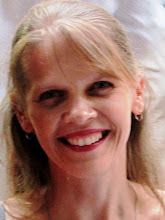Really, you ask. Only four days a week? How hard can that be?
I must admit that I’ve wondered that too. But over the months, the stories come out and now I think he’s a bit of a champion (even if he is a growling bear at times).
Picture this.
Each morning Steve rides half an hour across town on his chugging old Dealim motor scooter, trying to avoid the other motorists who seemed determined to kill him. As he sits at a set of lights alongside a beat-up truck belching smoke, he tries not to think of the research that shows that Phnom Penh air is five times more polluted than Bangkok – heck even the air is trying to kill him!
Arriving at work without any signs of outward harm, he has no idea what the day will bring. Although he has a number of patients already booked in, the hot-house of a room at Mercy Medical Center comes without air-conditioning but with a condition to also treat patients referred by the doctors there. As these patients are often from the countryside, he must see them immediately before they make the long journey home.
Did I casually mention patients from the countryside? These patients are the most difficult Steve has even seen. Not only are their physical complaints compounded by years of neglect, they are often illiterate and poorly educated. For Steve this means that their spoken Khmer does not resemble anything we’ve ever been taught and their understanding of concepts of tendons, ligaments and other fanciful physiological imaginations is zip. Symptoms are often masked also by the general complaints of dizziness, headaches and full body aches which more than likely relate to dehydration or years of MSG use, but can’t be ignored by a physio. And rather than exercises, these patients would much prefer a cure-all tablet (wouldn’t we all) so as Steve sends them back to the countryside he has serious doubts about the productivity of his last hour or so.
While he probably won’t see these patients from the countryside again, he has many regular patients who have really grasped onto the value of physiotherapy and his appointments are in demand. He frequently has patients calling at all hours demanding, begging and clamoring to be seen. It’s enough to cause the normally gentle Steve to speak harshly and refuse treatment for those who continue to pressure him.
However, physiotherapy in general is a poorly valued service in Cambodia. Steve estimates that there are only around 350 physiotherapists in Cambodia (approx. one for every 30,000 people) and these have been only trained to a Diploma level. Unlike Australia, physiotherapy does not attract the best and brightest but ranks lower than nursing.
It’s something he’s working on.
For the last few months, he has one or two Khmer physiotherapists shadowing him as he treats patients, asking questions and learning treatment techniques. They work at a local hospital in the mornings and follow him around in the afternoons. Steve actually enjoys teaching but into the afternoon the room heats up to unbearable levels and he is often weary from the morning patient load. He is concerned that he often doesn’t have much energy to teach these guys but they seem happy enough with the scraps that he can give and keep coming anyway.
But training has been a significant part of his work for the past five years through his involvement in the Physiotherapy Upgrade Training Program. This program is supported by Singapore General Hospital who provided the funding and lecturers while Steve supervisors the clinical training. As the program has progressed, the top graduates have gained further training in Singapore and are now virtually running this year themselves.
But the last two weeks, Steve has been helping out by lecturing on the lower limb for the 5th promotion of this program. And he has been a different man. Teaching in aircon only minutes from home really makes a difference. I visited the Physio School the other day and found a patient, clear and even joking Steve working with a bunch of physiotherapists keen to upgrade their skills.
It was a pleasure to watch and I’m no longer afraid to approach the couch of an afternoon. (ok another exaggeration). Next week, he is back in the clinic, supervising two to three physios at a time as they apply the skills they have learnt over a full working week - it's a seriously tough job



No comments:
Post a Comment